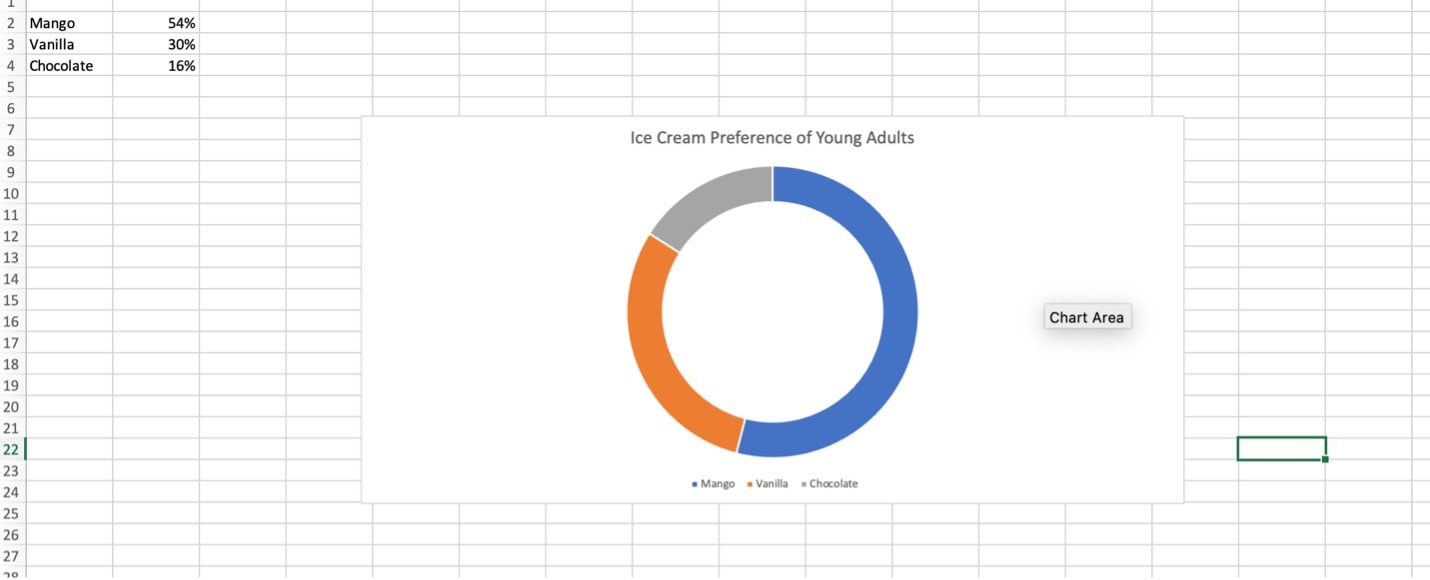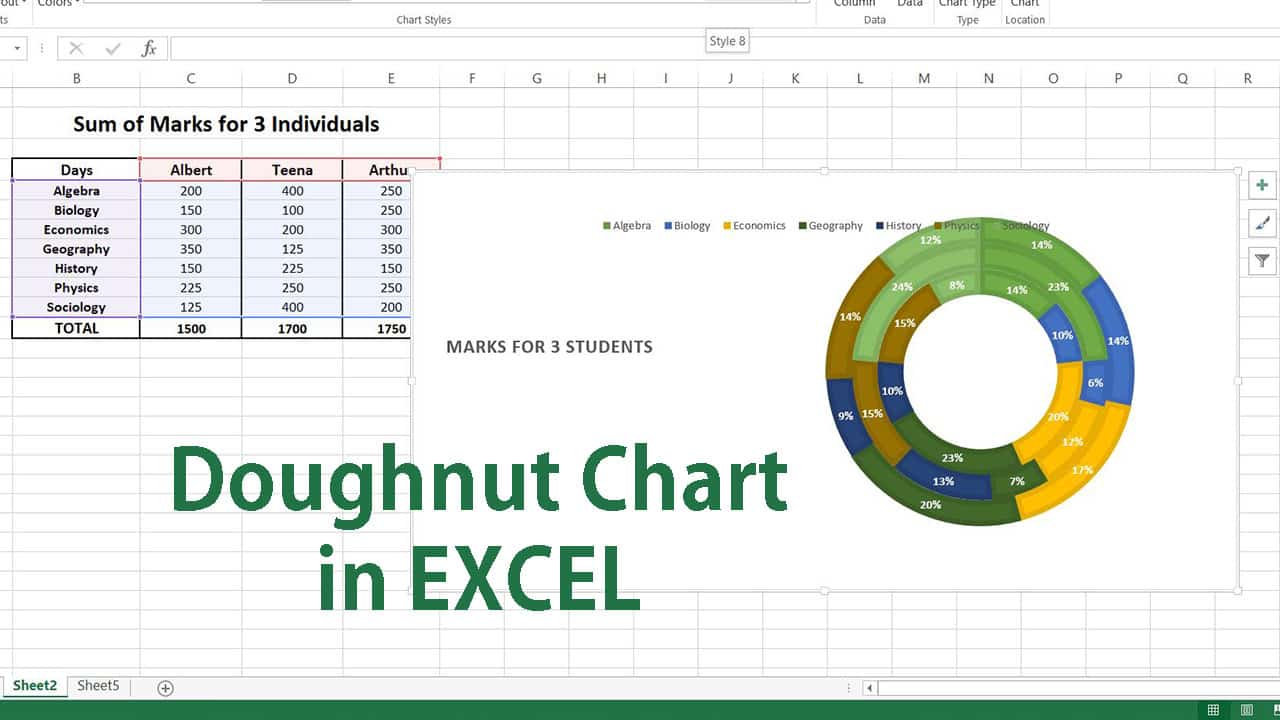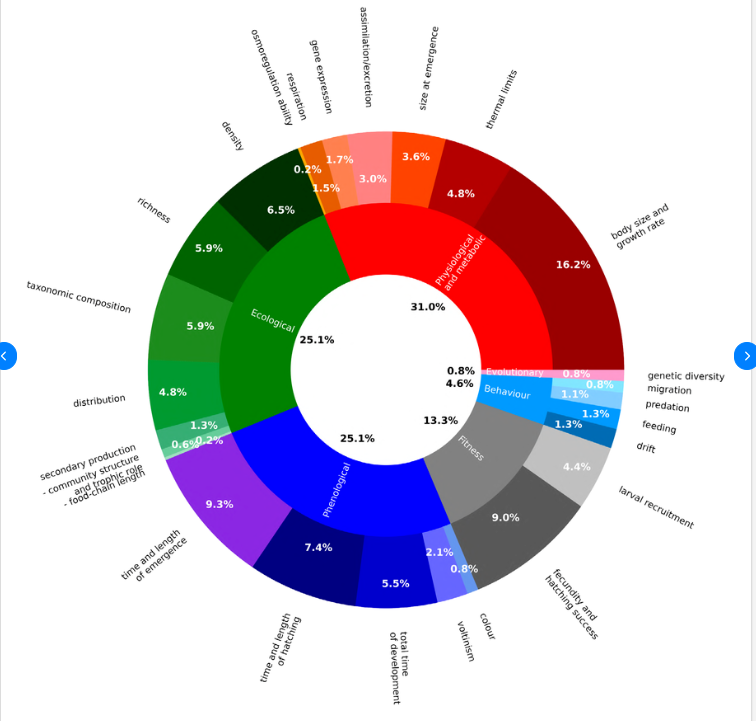Mastering the Donut Chart in Excel: A Complete Information
Associated Articles: Mastering the Donut Chart in Excel: A Complete Information
Introduction
On this auspicious event, we’re delighted to delve into the intriguing matter associated to Mastering the Donut Chart in Excel: A Complete Information. Let’s weave fascinating data and provide recent views to the readers.
Desk of Content material
Mastering the Donut Chart in Excel: A Complete Information

Donut charts, a visually interesting variation of pie charts, provide a compelling strategy to symbolize proportional knowledge. Not like their pie chart counterparts, donut charts enable for the inclusion of a central space, which can be utilized to show extra data, a title, a emblem, or just to reinforce the chart’s aesthetic attraction. This text offers a complete information to creating efficient and informative donut charts in Excel, protecting every thing from fundamental creation to superior customization strategies.
I. Understanding the Goal of a Donut Chart
Earlier than diving into the creation course of, it is essential to grasp when a donut chart is the suitable selection to your knowledge visualization. Donut charts excel when you want to:
- Present proportions of an entire: Much like pie charts, they successfully illustrate the relative sizes of various classes inside a single dataset.
- Spotlight a dominant class: The biggest phase visually stands out, drawing the viewer’s consideration to essentially the most good portion of the information.
- Incorporate extra data: The central space offers precious actual property for supplementary particulars, bettering the chart’s total informational density.
- Examine a number of datasets (with warning): Whereas doable, instantly evaluating a number of datasets utilizing donut charts can develop into cluttered and troublesome to interpret. Think about using a number of donut charts or different visualization strategies for complicated comparisons.
Donut charts are much less appropriate when:
- Exact values are essential: Whereas proportions are clearly displayed, exact numerical values should not instantly obvious. Think about including knowledge labels for readability.
- Many classes are concerned: Too many segments could make the chart overcrowded and troublesome to decipher. Intention for a manageable variety of classes (usually lower than 7).
- Small variations want highlighting: Delicate variations in proportions may be troublesome to discern visually.
II. Making a Fundamental Donut Chart in Excel
Excel presents a simple technique for creating donut charts. Let’s assume you’ve gotten a dataset like this:
| Class | Worth |
|---|---|
| A | 30 |
| B | 25 |
| C | 20 |
| D | 15 |
| E | 10 |
Step 1: Put together your knowledge: Guarantee your knowledge is organized in a tabular format with a column for classes and a column for his or her corresponding values.
Step 2: Insert a chart: Choose your knowledge (together with headers), then go to the "Insert" tab and click on on the "Pie or Doughnut" chart icon. Select the "Doughnut" choice.
Step 3: Evaluation the default chart: Excel will mechanically generate a fundamental donut chart. Observe the phase sizes, which instantly mirror the proportions of your knowledge.
III. Customizing your Donut Chart for Enhanced Readability and Aesthetics
A fundamental donut chart is practical, however customization elevates it to a strong communication software. Listed here are a number of key customization choices:
A. Including Information Labels: Information labels present essential context, displaying the proportion or worth of every phase.
- Choose the chart: Click on on the donut chart to activate it.
- Add knowledge labels: Proper-click on any phase and select "Add Information Labels."
- Customise labels: Experiment with completely different label positions (inside or outdoors the segments), and think about including percentages, values, or each. You too can format the label textual content (font, dimension, shade).
B. Exploding Segments: Highlighting a particular phase by "exploding" it (shifting it barely away from the middle) attracts consideration to a specific class.
- Choose a phase: Click on on the phase you need to emphasize.
- Explode the phase: Proper-click on the chosen phase and select "Format Information Sequence."
- Regulate the separation: Within the "Sequence Choices" pane, regulate the "Separation" worth to regulate how far the phase is moved.
C. Modifying Colours and Kinds: Constant and visually interesting shade schemes improve the chart’s readability and aesthetic attraction.
- Choose the chart: Click on on the donut chart.
- Change colours: Proper-click on a phase and select "Format Information Sequence." Regulate the "Fill" choice to alter the phase’s shade. Think about using a shade palette that’s each visually interesting and accessible.
- Regulate Chart Kinds: Excel presents pre-designed chart kinds that change the general appear and feel. Discover these choices underneath the "Chart Design" tab.
D. Using the Central Space: The donut chart’s central space presents a possibility so as to add precious data.
- Add a textual content field: Go to the "Insert" tab and click on on "Textual content Field." Draw a textual content field within the heart of the donut chart and kind your supplementary data (e.g., a title, a abstract statistic, or a related picture).
- Format the textual content field: Customise the textual content field’s look (font, dimension, shade, border) to match the general chart fashion. You too can add a emblem or picture to reinforce the visible attraction.
IV. Superior Strategies and Issues
A. Utilizing Conditional Formatting: Improve the visible influence by making use of conditional formatting to focus on particular segments primarily based on their values or different standards.
B. Creating A number of Donut Charts: Examine a number of datasets extra successfully by creating separate donut charts for every dataset, guaranteeing constant formatting for straightforward comparability.
C. Information Labels with Chief Strains: For improved readability, particularly with densely packed segments, use chief strains to attach knowledge labels to their corresponding segments. This may be achieved by customized formatting choices inside knowledge labels.
**D. Utilizing Chart








Closure
Thus, we hope this text has supplied precious insights into Mastering the Donut Chart in Excel: A Complete Information. We thanks for taking the time to learn this text. See you in our subsequent article!